#honestly the most accurate portrayal of mass in this show yet. just in this one line though
Explore tagged Tumblr posts
Text
“dean, this is massachusetts. there are a lot of catholics in massachusetts” SO TRUE KING
#shut up maggie#text#honestly the most accurate portrayal of mass in this show yet. just in this one line though#spn lb#10x16#kora spoilers
24 notes
·
View notes
Text
Our 2019 Drama Recs
Yes, we’re writing our 2019 drama rec post in 2021...! We didn’t have one earlier simply because we didn’t get to watch enough rec-worthy 2019 dramas in time. But here we are, having caught up with some great 2019 dramas back in 2020. It’s better late than never - and the same goes for you if you haven’t watched any of these. :)
1. Royal Nirvana 鹤唳华亭 (2019) + 别云间 the special (2020) recommended by Admin JL
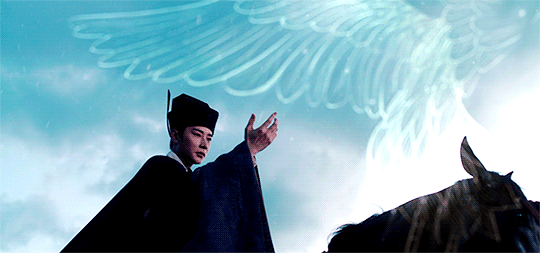
I just couldn’t go without ever expressing my ocean-deep love for Royal Nirvana. Life-changing. Monumental. Instantly an all-time favourite of mine after I binged it in emotional devastation. Honestly, it is not the easiest show to watch - it requires mental and emotional effort for its highly nuanced and poetic writing. But it’s also the surest way to etch a story into your heart.
It’s also a tremendously rewarding and cathartic story for me. It’s not everyday that we see such a strongly thematic and meaningful story, which means a hell lot to me with its exploration of father/child relationship, loss, obligations and morality - among many. Xiao Dingquan will forever be one of the most important, well-loved protagonists in my heart. We’re the choices we make more so than what we become in the end.
2. The World Between Us 我們與惡的距離 recommended by Admin JY
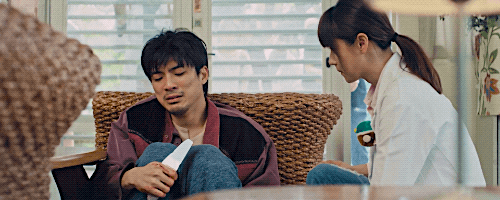
There are so many things that this show gets right that its critical acclaim is more than well-deserved. From mental health representation, influence of media, the concept of fairness, and showing the other side of a common dichotomous narrative, this show packs this all in a balanced, objective yet emotional portrayal within a mere 10 episodes.
Showing the aftermath of an unfortunate mass shooting, this drama explores the emotional perspectives of all those involved. It gives proper acknowledgement to the victims of tragedies yet balances out with very fair and accurate portrayals of the perpetrators' families and their own victimhood. At the same time, the show includes some of the most accurate and fair representation of mental illness that I have ever seen!!! Not only are mental health patients’ struggled deftly portrayed, but also the professionals’ perspectives and struggles are clearly represented.
The World Between Us is the wake-up call we all need to see beyond the biases we easily assume to see the the bigger picture, of the world not just between us but that brings us together.
3. Hello Debate Opponent 你好对方辩友 recommended by Admin JL
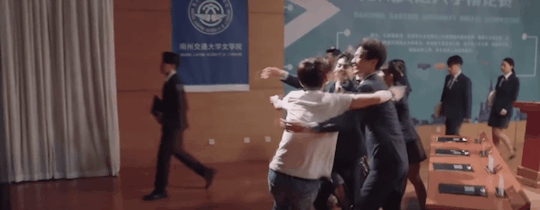
This is a pleasant little surprise of a coming-of-age story! Quite rare for a cdrama. Centred around a university debate club, the story goes hard on competitive debate representation which comes hand in hand with its sensible character writing and development. It’s a feel-good and quirky drama about growth and friendship - and can provide comfort and nuggets of wisdom to youths and anyone else alike. If anything, you’ll learn a thing or two about competitive debate with this drama’s involvement of numerous professional debaters in its production. :)
Watch the official episodes, subbed, on Youtube.
4. When the Camellia Blooms recommended by Admin JY
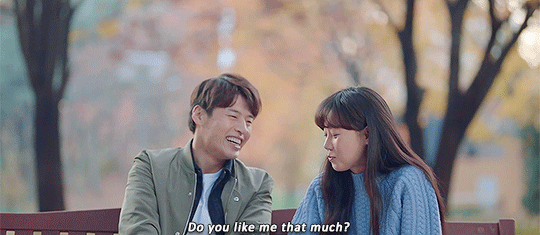
No handsome or rich chaebol to save the day, no dreams come true of getting rich or living in a luxurious home in the city, no flashy glamourous fashion-show-like clothes - When the Camellia Blooms is instead quite truly a down-to-earth breath of fresh air KDrama.
For a slice-of-life drama, it includes many elements subtly yet skilfully woven together with important themes of family, community bonds and self-confidence. Even amidst the realistic struggles of societal biases and single parenthood, the show never fails to inject positivity into the situation, and more so by emphasizing the value of kindness.
With a strong cast and diverse characters, a subtle but solid OST and beautiful sceneries, this is definitely a lovely and heartwarming drama that breaks the stereotype of what it means to have a strong female lead and even what it means to write a romcom kdrama.
5. Please Love Me 拜托请你爱我 recommended by Admin JL
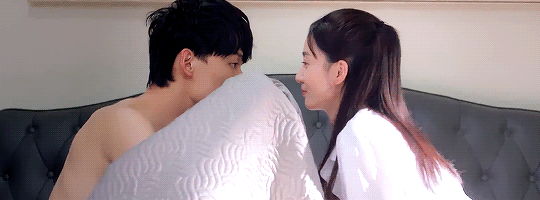
If you’re a steadfast fake marriage trope junkie like me, look no further. This is a drama I wasn’t expecting to enjoy - many romcom webdramas have been more misses than hits - but very glad I did. Straight off the bat, it was already pleasing for its sensible character writing - and eventually continues to prove that it fundamentally understands how two very different people come together in a relationship. It even provided me with little surprises of the usual trope - it’s one of the few romance stories which has its leads’ relationship held up after a mutual confirmation of feelings. Youyou and Yi Han are so wholesome. <3
Watch the official episodes, subbed, on Youtube.
-
Have you watched these 2019 shows before? Tell us what you think!
~ Admin JY and Admin JL
#royal nirvana#the world between us#hello debate opponent#please love me#cdramanet#when the camellia blooms#鹤唳华亭#我們與惡的距離#你好对方辩友#拜托请你爱我#cdrama#drama#kdrama#twdrama#shoujoinvestigation#sji: year in review#sji: recs#year: 2019#admin: jy#admin: jl
49 notes
·
View notes
Note
(1/2) hi there!! I’ve followed you for a long time and im a writer and I’ve been toying with the idea of making one of the main characters (and her family) of an original story of mine Jewish. The story is very family oriented, and though her Jewish identity wouldnt be the center focus (the story is more about womanhood and queerness) it’s definitely important and will constantly come up. Since I know you’re jewish yourself, I was wondering if there’s anything about your Jewish identity you’d li
(2/2) like to be represented or touched on more!! Or if you had any recommendations for resources regarding Jewish identity for women and queer folks. I’ve researched quite a bit about Judaism in the past, so at this point I’m trying to find things to read about Jewish identity and maybe concepts people have a hard time reconciling with their faith, rather than just general information about Judaism. thank you for reading this at all!!
————
hi there! happy to help, but know i can only speak for my specific relationship to the culture. contextually: i was raised not with the religious elements as much as i was with the ethnic and cultural components, which in my experience is much more common for american jews.
i think that as i’ve become more connected to my history and my culture, i’ve realized the really latent disparity that comes with diaspora.
as in—in many ways, there’s a lot about american white culture that i don’t relate to or especially feel welcome within, but at the same time, many jews are also beneficiaries of white privilege. it would be wrong to say that i’ve experienced any negative profiling, especially as i personally am fair, green-eyed, and blonde.
(certainly the discussion of white or white adjacent privilege in jews is not universal; i have a friend who is black and jewish and she’s talked to me about the struggle of having both feet in identities that sometimes feel far away from one another. but again—i can’t speak to her own personal relationship with that, nor do i want to try, as it’s not my identity)
but for askenazi american jews in particular, especially recently, there’s a real struggle in where exactly we fit in. the antisemitism is hypocritical and often unconscious on the liberal side, and vicious and veiled on the right wing side.
for example—recently, in chicago dyke march, three jewish women were kicked out of the parade for having a rainbow flag with the star of david on it. this is a jewish symbol before it’s israeli, but they were kicked out because it made people think it was about zionism.
(zionism, for clarification, is the support of israel as a country—a very complicated subject, which i honestly don’t recommend you bringing up in your character if you’re not jewish)
there’s a trend in american liberalism that for jews to be welcome in safe spaces, they must not be “like other jews,” like the bad ones in israel. a progressive american jew must constantly defend themselves against the actions of a country which they possibly have never been to or have no personal relationship towards. here’s an excerpt from an article discussing this:
“By that hierarchy, you might imagine that the Jewish people — enduring yet another wave of anti-Semitism here and abroad — should be registered as victims. Not quite.
Why? Largely because of Israel, the Jewish state, which today’s progressives see only as a vehicle for oppression of the Palestinians […] no matter that progressives hold no other country to the same standard. China may brutalize Buddhists in Tibet and Muslims in Xinjiang, while denying basic rights to the rest of its 1.3 billion citizens, but “woke” activists pushing intersectionality keep mum on all that.”
[x]
(i should note that i personally don’t support the actions and apartheid structure put in place by israel, but the fact that i feel compelled to make that delineation is kind of my point)
other related readings on the subject: 1, 2
and then of course, especially lately, there’s been an overt-but-coded rise of antisemitism on the right. if you ever hear the words “global power” or “global banks” or anything that alludes to some handful of people or families that control all the money in the world and are suppressing working class white people, it’s antisemitic conspiracy that jews somehow are puppeteering the world in domination.
what i fear, as a jewish woman, is not an individual attack on my safety, or profiling, etc—instead it’s about being a person whose entire cultural history is defined by being the scapegoat, or historically the boogeyman for everyone’s economic problems.
throughout all recorded history, the jewish identity is tied to persecution and blame. in fact, one of the reasons why most american jews are eastern european (areas now russian, polish, ukranian, etc) is because although we migrated there and lived there for a long time, we were never considered citizens and thus fled to america as soon as we were able on a mass scale.
similarly, the reason why so many german jews didn’t leave at the start of the holocaust was because they felt as though they were germans; they just didn’t think their neighbors and government would turn on them until it was too late.
so the lesson lingering there for a lot of young american jews is that no matter how comfortable and integrated you may be with the culture of your country, people en masse will still always turn on you and blame you, especially when there’s economic or political elements to it.
it’s a cultural wariness, basically, and that’s what i mean about the disparity of diaspora. we often say never again, but there’s a imprint of don’t get too cozy.
you are, but you aren’t.
it’s not all so wrought, though.
there’s also a lot of warmth and humor and self-deprecation in the jewish identity—the kind of thing necessary to handle the burden of so much historical atonement and loss��and there is, at least in the jewish community in which i grew up, a lot of acceptance and love.
orthodox judaism can be as rigid and sexist and racist as any other orthodox religion, but reform judaism (which is progressive and much more the norm) is super accepting, especially of queerness, at least in my temple.
again, i can’t speak so much to the faith of it, because i ended that relationship with the religion after my bat mitzvah. i can speak more to the themes of the holidays and cultural navigations if you want, though.
a portrayal of jewish characters i loved that might help you: schmidt on new girl, norah from nick & norah’s infinite playlist, jonathan safran foer in everything is illuminated (basically autobiographical/writing himself), shoshana dreyfus in inglorious basterds---actually, the ENTIRE family in the show transparent is an amazing and unflinchingly accurate portrayal of a modern jewish family.
tl;dr, all that being said though, honestly, if you’re not jewish, i don’t know if it’s really your place to speak to the specific current relationship towards diaspora.
i think you can allude to it, certainly, especially if your character isn’t sure where to align themselves in terms of their relationship towards social justice, but it’s a very complicated identity that i personally am still figuring out how to navigate, and i can’t really speak to what narrative you want to explore more specifically than what you asked above.
honestly, a lot of jewish humor is making fun of the sometimes accurately stereotypical things we do, and i’m not sure you, if you’re not jewish, should be doing that. but i think self-deprecation, sarcasm, warmth, respect for contextual history, and adaptability are good cultural traits that would be alright for you to play with!
if you want to send me specific examples, i’d be happy to tell give you a more specific opinion on things. and i think it’s great that you want to tell a story with representation!!!!
let me know if this was what you meant, hopefully this was helpful~
5 notes
·
View notes
Text
Epic Movie (Re)Watch #140 - Singin’ in the Rain
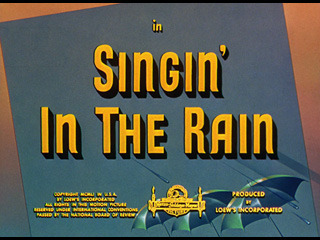
Spoilers below
Have I seen it before: Yes
Did I like it then: Yes.
Do I remember it: Yes.
Did I see it in theaters: No.
Format: Blu-ray
This post is dedicated to @hyla-brook, as I can no longer watch this movie without thinking of my friend.
1) This film is not only one of the best movie musicals of all time, but one of the best movies of all time period. More on that coming up.
2) The opening credits include the line, “Suggested by the song...” In fact, the entire film was written AFTER the songs with only two exceptions (“Moses” and “Make ‘Em Laugh”), with all the other songs already being released and known to the world at the time. This effectively makes Singin’ in the Rain one of the earliest karaoke musicals (alá Rock of Ages), but today the songs are known largely if not exclusively because of the long lasting popularity of this film.
3) The backstory given by Don (Gene Kelly) is a wonderful opening to the film for almost countless reasons.
youtube
For one, we get a strong establishment of the friendship and loyalty which exists between Don and Cosmo (Donald O’Connor) as relationship as important to the film as Don’s love with Kathy. We also get a clear establishment of the film’s sense of humor, giving us a nice juxtaposition of expectations vs reality (“Dignity, always dignity.”) and incredible slapstick moments. It is also one of the most accurate portrayals of how someone finds success in Hollywood: through an endless stream of shit jobs in the hopes that you’ll be noticed. Kelly’s and O’Connor’s comedic brilliance are on full display, and we also get our fist inkling of the tumultuous relationships between Don and Lina.
Don [after he gets a lead in a movie, to Lina who was a jerk before]: “Are you doing anything tonight, Ms. Lamont? [She shakes her head no.] That’s funny...I’m busy.”
4) In case you ever think Hollywood making normal people feel self conscious about themselves is a modern invention:
Female Movie Patron [while Lina is onscreen]: “She’s so refined. I think I’ll kill myself.”
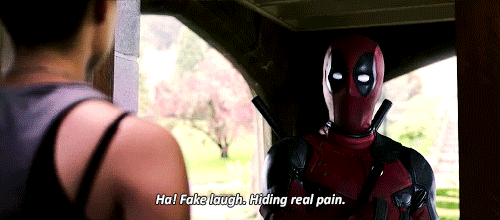
(GIF originally posted by @casey-jones)
5) Lina Lamont.
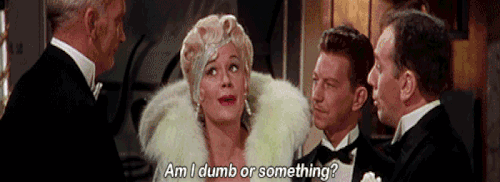
Lina’s character is established immediately from the second she opens her mouth: drunk on power, more than a bit of a moron, and a selfish jerk. She’s hysterical and Jean Hagen totally loses herself in the character. No, that’s not Hagen’s normal speaking voice, but you thought it didn’t you? That’s how incredible she is in the role, and it is easy to forget how much brilliance she shows off when compared to the trio of Kelly, O’Connor, and Debbie Reynolds. This film wouldn’t be nearly the classic it is without Jean Hagen as Lina Lamont.
6) In case there was any question: I am Cosmo.
Studio Rep [about Lina]: “The studio has to keep their stars from looking ridiculous at any cost.”
Don: “No one’s got that much money.”
7) There are going to be so many Cosmo quotes in this recap, I’m just warning you. Because, you know, I’m Cosmo basically.
Don [being swarmed by fans]: “Hey Cos, do something! Call me a cab!”
Cosmo: “Okay, you’re a cab!”
8) Debbie Reynolds as Kathy Seldon.

What on earth can I say about one of the greatest actresses of all time in only her fourth credited screen real knocking it out of the park? I honestly don’t know but I’ll try to figure it out as I type. Reynolds is...perfection. In a trio of incredible performances I think she may give the strongest. Her chemistry with Kelly is great, subtle, trusting, and she does just such a wonderful job of making Kathy an amazing character. She’s not some manic pixie dream girl. She has her own desires, her own dreams, her own sacrifices she’s willing to make. Reynolds is able to portray Kathy as honestly good while still remaining interesting, honestly optimistic without being too naive or annoying, and honesty is just the word to apply to Reynolds’ whole work in the film. I love it.
9) One of the things I LOVE about this film is that Don and Kathy are not a “love at first sight” type of relationship. Don’s hitting on her is obviously because he’s a cad, she shuts him down, and then they’re able to have this unique conflict with each other where they both sort of act like jerks. Yet later they develop an honest connection with and affection for each other in such little time, it speaks greatly to the chemistry of the performers. One of my favorite love stories from this era of cinema.

10) The advent of the talkies are captured pretty accurately in this film. Everyone is skeptical about it, thinks it’ll be a fad, but the few likes Cosmo and studio head RF Simpson see how it could (and probably will be) the future.
11) I don’t think there is a better showcase for Donald O’Connor’s skills as a physical comedian than in “Make ‘Em Laugh”.
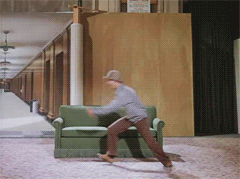
According to IMDb:
Donald O'Connor recalled, "I was smoking four packs of cigarettes a day then, and getting up those walls was murder. They had to bank one wall so I could make it up and then through another wall. We filmed that whole sequence in one day. We did it on a concrete floor. My body just had to absorb this tremendous shock. Things were building to such a crescendo that I thought I'd have to commit suicide for the ending. I came back on the set three days later. All the grips applauded. [Gene Kelly] applauded, told me what a great number it was. Then Gene said, "Do you think you could do that number again?" I said, "Sure, any time". He said, "Well, we're going to have to do it again tomorrow". No one had checked the aperture of the camera and they fogged out all the film. So the next day I did it again! By the end my feet and ankles were a mass of bruises."
The entire number is just packed full of classic Charlie Chaplin or Buster Keaton style gags all done to a fast pace number and it gets to the reason this old school movie musical has lasted the test of time where others have failed:
Most old school movie musicals have songs which don’t serve the film AT ALL they could be totally skipped and nothing would change. In some respects this film is the same. HOWEVER: the numbers are just so wildly and fantastically fun and entertaining that you are never bored by watching them. You are just so focused on what is going on and enjoying it so damn much you wouldn’t dream of skipping it (for the most part). THAT is why this film is such a classic. THAT is why it stands the test of time.
12)
RF [after pitching a talkie to Don]: “Lockwood and Lamont! They talk!”
Lina: “Of course we talk! Don’t everybody?”
Man RF, you did NOT think that through.
13) For me, “Beautiful Girls” is always the number I want to skip. It just is not nearly as entertaining as some of the other ones. It does nothing for me.


(GIF source unknown [if this is your GIF please let me know].)
14) Be still my beating heart.
Don: “Kathy I’m trying to say something to you but I’m such a ham. I guess I’m unable to without the proper setting.”

My heart doesn’t get mushy romantic for much, but "You Were Meant For Me”...It is just so beautifully staged, the lighting and setting is incredible, and Kelly is able to portray such honest emotion in the song that...I LOVE IT!
15) “Moses” is another example of a number which really doesn’t serve the plot in anyway but is just so damn entertaining I don’t really care! Donald O’Connor is great again, and we get some nice bromantic fun!

16) We get like a solid ten minutes of this film’s excellent comedy in two back to back scenes: when the filmmakers are trying to deal with the sound equipment, and when they see just how poorly it worked in the final film. It’s accurate really to today too: audiences will forgive crappy visuals but if your sound is shit then your film is shit. I know this because I’ve directed a number of films with shit sound (most of them back in high school).
17) Don’s conflict is perfectly summed up in one line:
Don: “The picture’s a museum piece. I’m a museum piece.”
The film’s mostly a musical comedy so it’s easy to forget about Don’s conflict, but he’s an actor in a changing industry and his first encounter with Kathy had him questioning his skills. Everything he does for the movies in this film is driven by that issue.
18) “Good Morning”.

Another song which is totally superfluous and serves the plot in no real way, I totally love it. It shows the trio at their best together in a wildly fun and entertaining number. But it was a pain to shoot!
After they finished the "Good Morning" number, Debbie Reynolds had to be carried to her dressing room because she had burst some blood vessels in her feet. Despite her hard work on the "Good Morning" number, Gene Kelly decided that someone should dub her tap sounds, so he went into a dubbing room to dub the sound of her feet as well as his own.
During a TV interview Debbie Reynolds shared while filming "Good Morning" one of her feet was bleeding, requiring flesh-colored bandages beneath her hose. As the trio collapsed on the overturned sofa, she turned her head to Donald O'Connor and said, "Thank God that's over." Watch closely and you can see her say it during the dubbed jolly laughter.
Their effort yielded one of the best numbers in the film!
19) The iconic titular song/number: “Singin’ in the Rain”.

Pretty much everything you need to know about Kelly’s devotion and hardwork in the film can be summed up by this fact:
The "Singing in the Rain" number took all day to set up--and Gene Kelly was very ill (some say with a fever over 101). When it was all set up, Kelly insisted on doing a take--even though the blocking was only rudimentary (starting and ending positions only), and the director was ready to send him home. He ad-libbed most of it and it only took one take, which is what you see on film.
Kelly’s sheer joy and the memorable/simple imagery is what makes the number so iconic. It is truly relatable, and its existence makes walking in the rain just a bit less melancholy.
20) Hey, remember how I’m Cosmo?
RF: “Cosmo, remind me to give you a raise!”
Cosmo: “Oh RF!”
RF: “Yes?”
Cosmo: “Give me a raise.”
21) Okay, “Broadway Melody”...

“Broadway Melody” is THE most superfluous number in the film and honestly the one which could probably be cut. It is very entertaining - and much more engrossing than its equivalent in Kelly’s An American in Paris in my opinion - but it’s just so damn long! It works as it’s own short film. However the visuals are incredibly strong and Kelly is in top form, so it obviously doesn’t ruin the film. But honestly it is the song you are most easy to skip and keep watching.
22) Aww, these two...
Don [to Kathy]: “From now on there’s only one fan I’m worried about.”
23) So far Lina has been a funny antagonistic dunce in the film, but damn if at the end she doesn’t turn into a manipulative evil jerk. I LOVE IT! She shows off she’s smarter than she’s shown [at least a little], boosts her own public image, almost sabotages Kathy’s career, and tries to extort RF into giving her more power. It is the fact she flies so close to the sun which causes her downfall, but damn if she ain’t just EVIL!!!!!
24) According to IMDb:
In the "Would You" number, Kathy Selden (Debbie Reynolds) is dubbing the voice of Lina Lamont (Jean Hagen) because Lina's voice is shrill and screechy. However, it's not Reynolds who is really speaking, it's Jean Hagen herself, who actually had a beautiful deep, rich voice. So you have Jean Hagen dubbing Debbie Reynolds dubbing Jean Hagen. And when Debbie is supposedly dubbing Jean's singing of "Would You", the voice you hear singing actually belongs to Betty Noyes, who had a much richer singing voice than Debbie.
25) These three are just so happy to embarrass Lina.


26) Kathy’s teary eyed look at Don when she realizes he WASN’T being a total jerk by having her sing for Lina and in fact letting the whole world know who she is just...be still my heart.
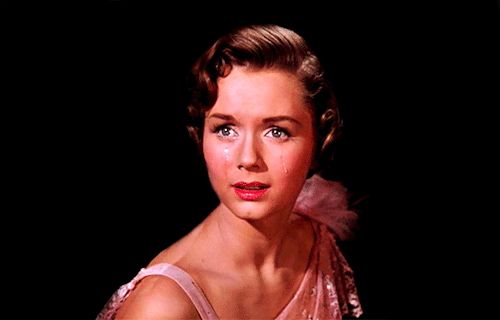
I miss Debbie Reynolds.
Singin’ in the Rain is a classic of cinema. Even though it falls into the trope of songs which don’t advance the plot, the songs are just SO fun to watch! This film is pure entertainment, with great acting on all parts (especially from the trio of Kelly, O’Connor, and Reynolds) and just honest character writing. It’s SO good! Go watch it if you haven’t!
#Singin' in the Rain#Debbie Reynolds#Gene Kelly#Donald O'Connor#Singin in the Rain#Jean Hagen#Epic Movie (Re)Watch#Movie#Film#GIF
48 notes
·
View notes